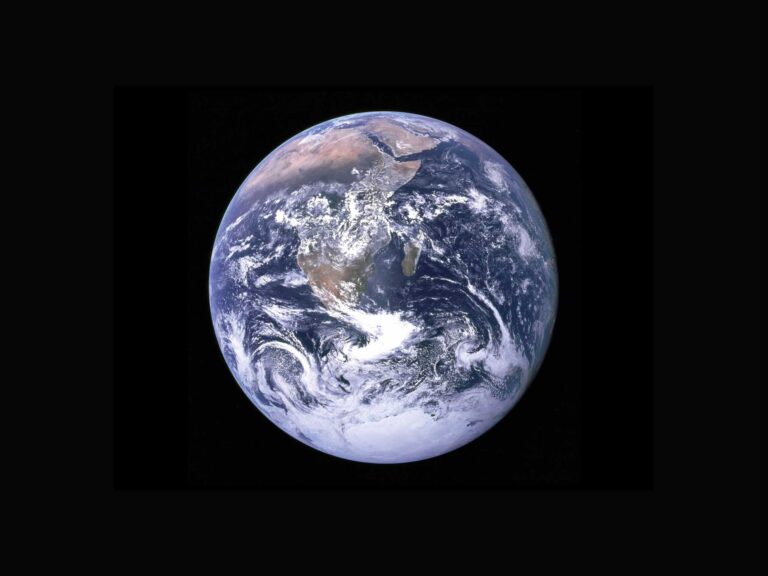The Earth Overshoot Day is an annual event that marks the point at which humanity’s resource consumption for the year exceeds the planet’s ability to sustainably regenerate those resources.
It’s an important reminder of the impact that humans have on our planet and the growing pressure we are placing on its resources.
This illustrates how our lifestyles are pushing us beyond the planet’s ability to cope and shows how we are consuming nature faster than it can renew itself.
Table of Contents
What is the Earth Overshoot Day
The idea was developed and introduced by Mathis Wackemagel, the former president of Global Footprint Network. This is an international think tank that promotes sustainability.
The Earth Overshoot Day is calculated by comparing data on the earth’s biocapacity, or the ability of the planet to regenerate resources, and humanity’s ecological footprint, or the number of resources consumed by human activities.
Humanity first went into overshoot in the early 1970s and has been overshoot ever since then. Therefore, the date of Earth Overshoot Day has been steadily moving up over the years, with the earliest date ever recorded in 2021 on August 22nd.
This implies that humanity’s impact on the planet is increasing at an alarming rate and that urgent action is needed to reduce our consumption of natural resources.
There are only 60 countries that do not experience overshoot and fall within the one-Earth limit although they are all developing nations.
What are the main causes of the Earth Overshoot Day?
Among many others, here are things that contribute to earth overshoot day.
1. Overconsumption of fossil fuels
The burning of fossil fuels has been the largest contributor to greenhouse gas emissions, which are causing global temperatures to rise and leading to more extreme weather events, sea level rise, and other impacts.
Climate change is already causing devastating effects on communities, economies, and ecosystems around the world and it is projected to only get worse if we don’t take action. There must be a significant decrease in the usage of polluting fossil fuels including coal, natural gas, and oil.
2. Destruction of natural habitat
This is causing the loss of biodiversity. Deforestation, for example, is causing the loss of vital carbon sinks and reducing the earth’s ability to absorb carbon dioxide.
This is aggravating the effects of climate change and making it more difficult to achieve the goals of the Paris Agreement.
3. Depletion of natural resources
This not only affects the environment but also contributes to economic and social problems. It can lead to food and water shortages, increases in prices, loss of livelihoods, and forced migration. It also disproportionately affects the poor and marginalized communities who are more dependent on natural resources for their livelihoods.
Waiting for other people to take the initiative has no benefits. Instead, it is in the best interest of each community, business, and nation to safeguard its ability to function in the unavoidable future of increased climate change and resource shortages.
4. Overpopulation
Some environmentalists falsely claim that the sole issue is excessive consumption and that our data is unimportant. If we neglect the population element, sustainability would require a more drastic reduction in consumption, according to basic math logic.
The rise in individual and collective resource use is one of the main factors contributing to the planet’s ecological overshoot. Because of excessive resource use, waste production, and population growth, ecological overshoot is getting worse.
Humans can still affect change by consuming fewer natural resources and preserving the ecosystem’s equilibrium.
How can we delay the Earth Overshoot Day?
Earth Overshoot Day was moved to August 22 in 2020, making it a very noteworthy year. Why is that? Because human business was forced to reduce their destructive operations as a result of the Covid-19 pandemic.
But how can we move the Overshoot Day back in an intentional, non-disastrous, and permanent way?
- By reducing our consumption of fossil fuels, for example, can be achieved by increasing the use of renewable energy sources, such as wind and solar power;
- through massive planting of trees;
- protecting natural habitats, and using sustainable farming practices can help to restore the earth’s ability to regenerate resources;
- adoption of more sustainable consumption patterns by choosing products that are produced sustainably, reducing waste, and eating a plant-based diet;
- population management through family planning education.
We can stop overshooting and create a happier and healthier Earth
Earth Overshoot Day is an important reminder of the urgent need to reduce our consumption of natural resources and take action to protect the planet. It highlights the need for systemic changes in the way we produce, consume, and live.
Although the changes we must make are significant, the transition will be less challenging if we move quickly. We can begin by acting to stabilize the population and reducing fossil fuels consumption as soon as possible.
By working together, we can reverse the trend of overconsumption and create a more sustainable future for all.
Read also: Bhutan is the first carbon-negative country in the world












